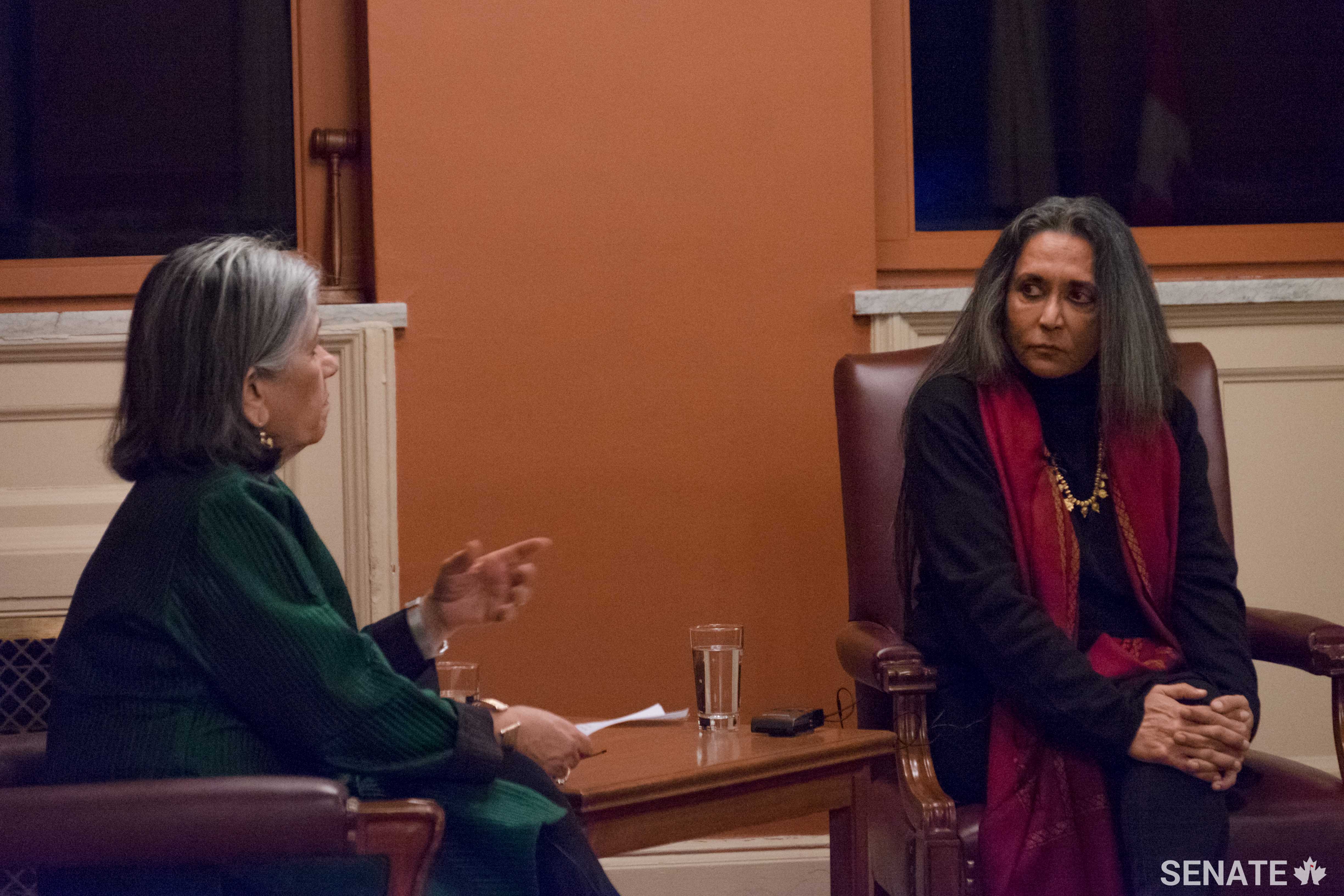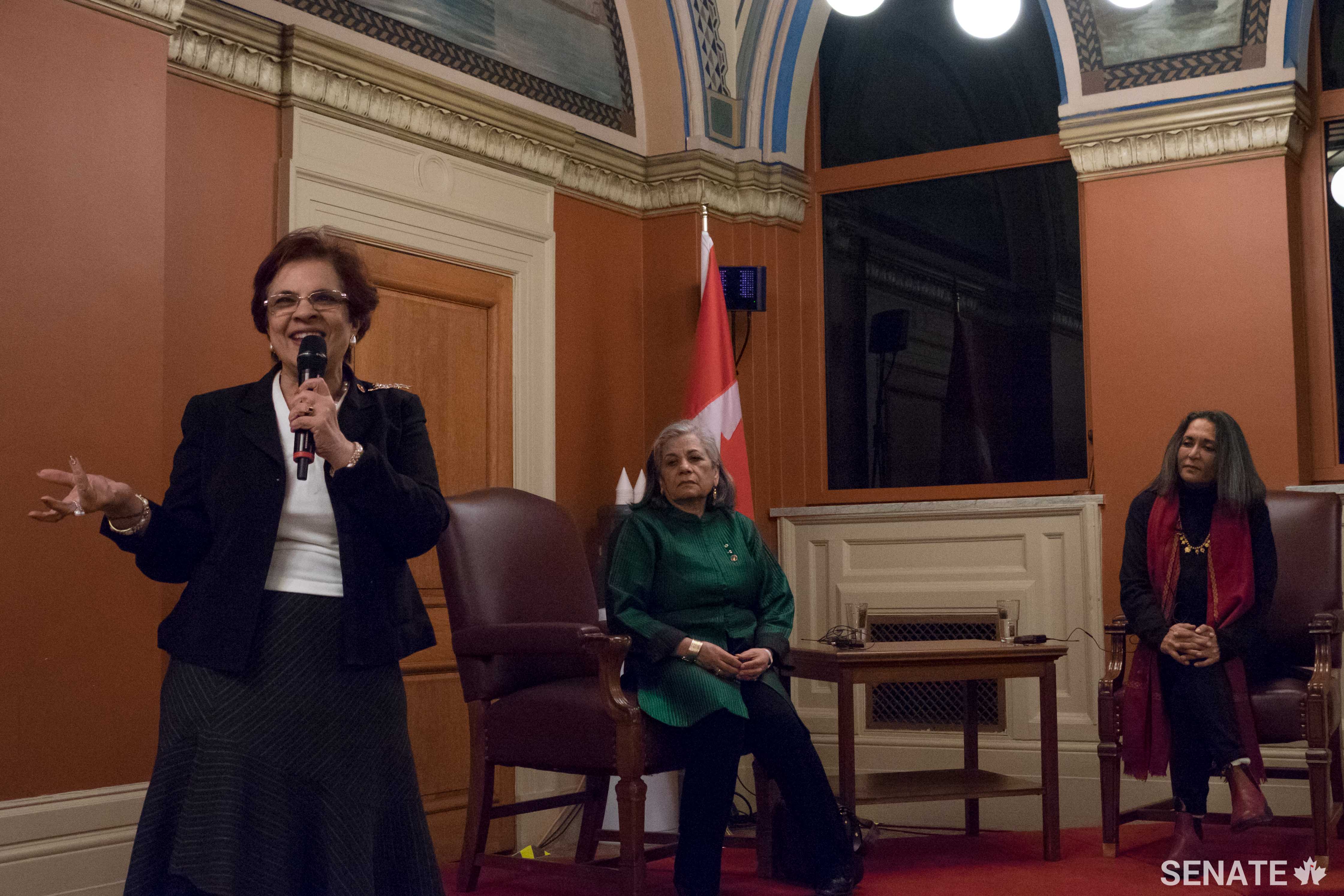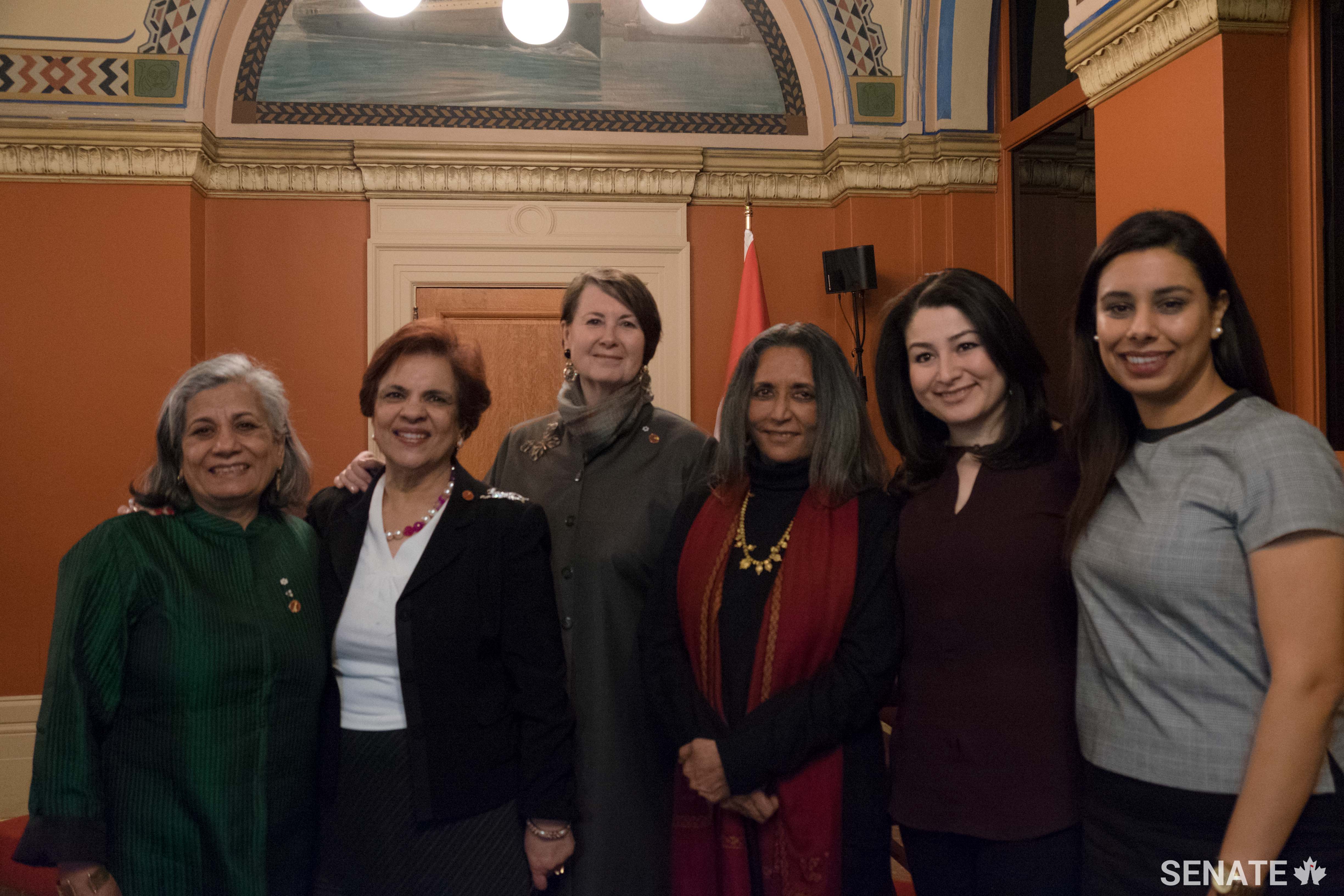Mehta film wakes Canadians up to violence against women

Canada needs a “wake-up call” to the scourge of violence against women, say senators Ratna Omidvar and Mobina Jaffer.
The two senators hosted a screening of The Anatomy of Violence — the latest film by the internationally-acclaimed Deepa Mehta, director of two Oscar-nominated films — on Parliament Hill on February 15.
The film revolves around the 2012 Delhi, India gang rape in which Jyoti Singh, a 23-year-old Indian woman who was studying physiotherapy, was brutally assaulted and raped on a moving bus by six men, over the course of 84 minutes, suffering injuries that led to her death.
“I was in Delhi in 2012 when the rape case happened and took part in a couple of demonstrations. It was like an earthquake. Everything shifted at that moment,” Mehta said.
“It was the nature of this particular rape that was a wake-up call. It went further than being about the victim — this was now about prevention. The message was clear: we cannot take it anymore.”
Mehta shocks the audience, however, by choosing to follow the stories of the rapists, not the victim. From one day to the next, six young men went from seemingly normal to perpetrators of a horrific crime. Four were sentenced to death, one was jailed as a juvenile and a sixth hanged himself in jail while awaiting trial.
“I was intrigued by the rapists. Who are they? What are they? Are monsters created or are they born? What is the complicity of society in making a rapist?”
In focusing on the rapists, the film manages to confront the systemic causes that lead to violence against women — misogyny and patriarchy.
But despite the film being set in India, the message of the evening was clear and close to home — sexual assault happens as much in the North America as anywhere in the world.
“While we may not have that particular kind of violence here in Canada, we have our own history of violence against women,” Senator Omidvar said.
“We know about the violence against women in prisons. We know about sexual harassment in the RCMP. We know that sexual assault allegations are routinely dismissed by police forces.”
While there has been undeniable progress made on women’s issues in Canada over the past few decades, none could deny that there’s still a long way to go in the struggle for gender equality.
With more than 5,000 sexual assault complaints reported to police across Canada every year, inaction amounts to condemning thousands more innocent Canadians to life-changing trauma.
“We need to change the status quo. People have to know that there’s zero tolerance of violence,” Senator Jaffer said.
“We should really be playing a leading role in Canada. We can’t just continue to talk women’s rights — we need to commit far more resources to prevention.”
Senators Omidvar and Jaffer are leaders among Parliament’s numerous strong advocates for women’s rights, but for change to be successful, they agree that efforts are needed on all fronts.
“Deepa is such a fantastic storyteller,” Senator Omidvar said.
“I work on policy and clause-by-clause review of legislation, but I think when people tell stories in powerful ways, like Deepa does, you move the needle in a completely different way.”



Related articles
Tags
Committee news
Mehta film wakes Canadians up to violence against women

Canada needs a “wake-up call” to the scourge of violence against women, say senators Ratna Omidvar and Mobina Jaffer.
The two senators hosted a screening of The Anatomy of Violence — the latest film by the internationally-acclaimed Deepa Mehta, director of two Oscar-nominated films — on Parliament Hill on February 15.
The film revolves around the 2012 Delhi, India gang rape in which Jyoti Singh, a 23-year-old Indian woman who was studying physiotherapy, was brutally assaulted and raped on a moving bus by six men, over the course of 84 minutes, suffering injuries that led to her death.
“I was in Delhi in 2012 when the rape case happened and took part in a couple of demonstrations. It was like an earthquake. Everything shifted at that moment,” Mehta said.
“It was the nature of this particular rape that was a wake-up call. It went further than being about the victim — this was now about prevention. The message was clear: we cannot take it anymore.”
Mehta shocks the audience, however, by choosing to follow the stories of the rapists, not the victim. From one day to the next, six young men went from seemingly normal to perpetrators of a horrific crime. Four were sentenced to death, one was jailed as a juvenile and a sixth hanged himself in jail while awaiting trial.
“I was intrigued by the rapists. Who are they? What are they? Are monsters created or are they born? What is the complicity of society in making a rapist?”
In focusing on the rapists, the film manages to confront the systemic causes that lead to violence against women — misogyny and patriarchy.
But despite the film being set in India, the message of the evening was clear and close to home — sexual assault happens as much in the North America as anywhere in the world.
“While we may not have that particular kind of violence here in Canada, we have our own history of violence against women,” Senator Omidvar said.
“We know about the violence against women in prisons. We know about sexual harassment in the RCMP. We know that sexual assault allegations are routinely dismissed by police forces.”
While there has been undeniable progress made on women’s issues in Canada over the past few decades, none could deny that there’s still a long way to go in the struggle for gender equality.
With more than 5,000 sexual assault complaints reported to police across Canada every year, inaction amounts to condemning thousands more innocent Canadians to life-changing trauma.
“We need to change the status quo. People have to know that there’s zero tolerance of violence,” Senator Jaffer said.
“We should really be playing a leading role in Canada. We can’t just continue to talk women’s rights — we need to commit far more resources to prevention.”
Senators Omidvar and Jaffer are leaders among Parliament’s numerous strong advocates for women’s rights, but for change to be successful, they agree that efforts are needed on all fronts.
“Deepa is such a fantastic storyteller,” Senator Omidvar said.
“I work on policy and clause-by-clause review of legislation, but I think when people tell stories in powerful ways, like Deepa does, you move the needle in a completely different way.”





